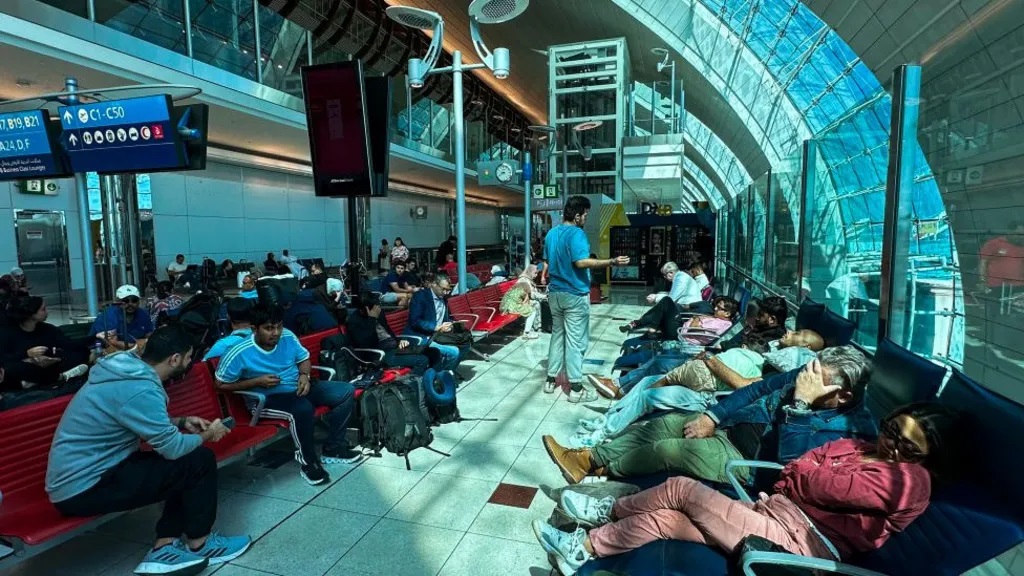A record 92.3 million passengers traveled through Dubai’s international airport last year, its operator said on Thursday, extending a post-pandemic tear that exemplifies the city’s economic boom.
The figure surpassed the previous high of 89.1 million in 2018, Dubai Airports said, despite regional tensions caused by the Gaza war and last April’s unprecedented floods that severely disrupted flights.
The United Arab Emirates city, located between Asia, Europe and Africa, has now been ranked as the world’s busiest international air hub for a decade.
Dubai Airports CEO Paul Griffiths said the airport was still profiting from Dubai’s bounce-back from Covid-19, when the city rapidly reopened its doors and the flag-carrying airline, Emirates, was quick to re-activate its fleet.
“We were like a coiled spring ready to respond as soon as the market recovered,” Griffiths told AFP in an interview.
“So we’ve been able to get back to capacity, we’ve been able to encourage new airlines and we’ve seen double-digit growth from most sectors during the course of last year as a result of that.”
The trade, tourism and business centre is also witnessing record real-estate prices and soaring population growth, spurred by the UAE’s efforts to diversify its economy away from oil.
More than a quarter of Dubai’s GDP in 2023 — 27 percent — came from its aviation sector, including Emirates and Dubai Airports, according to an economic impact report published by the two state-owned entities in October.
“It’s a symbiotic relationship between the health of the aviation sector and the health of the city’s economy,” Griffiths said.
In 2023, Dubai airport’s passenger numbers outstripped pre-pandemic 2019. A record performance in the first half of 2024 was followed by a strong finish with 8.2 million travelers in December, the busiest month of the year.
New airport ‘a game-changer’
Dubai is profiting from the slow recovery of competitor airlines and their home airports, which are being hampered by the slow turnaround of new aircraft orders, Griffiths said.
“If you take a lot of aircraft out of your fleet and you retire whole fleets, the ability to respond surely is by the acquisition of new aircraft and we know that the supply challenges from Boeing and Airbus have been very significant,” he said.
“If you were to go out and order a new aircraft now, the lead time is probably the longest it’s ever been.
“And the difficulties with resuscitating existing fleets and having retired aircraft and pilots, those are all conspiring to create a shortage of supply, which means that airlines and airports that do have the capacity are soaking up excess demand.”
In a statement, Dubai’s ruler and UAE Prime Minister Sheikh Mohammed bin Rashid Al Maktoum said the airport was targeting 400 international destinations, up from 272 currently.
Dubai, now expecting competition from a major new airport being built in Riyadh, in neighboring Saudi Arabia, is also planning a $35 billion expansion and relocation to Al Maktoum International, on the city’s outskirts.
“That will be a game-changer for the city and for the world because it will give us the capacity we need to be able to push on with our increases in the flights and the fleet enlargements of both (budget offshoot) flydubai and Emirates,” Griffiths said.
The CEO said he was confident of breaching 100 million passengers by 2027, before moving to Al Maktoum in 2032.
The new airport will be scaled up in phases, with an eventual capacity of about 240 million — expected to be the world’s biggest by a distance.








